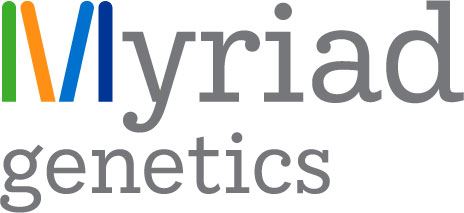Dr. Jasmine Luzum, PharmD, PhD, FHFSA, FAHA
1. What is your current role? What do you enjoy most about it? I am an Assistant Professor at the University of Michigan College of Pharmacy. My role encompasses leading my cardiovascular pharmacogenetic research lab, teaching, and engaging in service activities both on campus and with national organizations. What I find most rewarding is the impact my work has on improving healthcare: my research makes medications safer and more effective, and my teaching and service efforts guide current and future healthcare providers and scientists. 2. How long have you been a member of PGRN? How did you first join PGRN?While I can't pinpoint the exact date, I believe I joined PGRN when I was a PhD student around 2013 because my dissertation focused on pharmacogenetics. I also rejoined as a founding member when the PGRN was re-established. 3. In what ways has PGRN supported your career in pharmacogenomics?The PGRN has been instrumental in my career in many ways. It's facilitated new research collaborations through networking opportunities, provided ongoing education via the RIPS monthly webinars, and offered valuable resources like the "PGRN toolkit" on the PGRN website. I utilize these tools in my own research and teach them to the students in my graduate-level pharmacogenetics research course and those doing research projects in my lab. The annual PGRN meeting has been an outstanding platform for both learning about others’ research and sharing my own. I greatly enjoy being a part of the PGRN Implementation workgroup because I learn about clinical implementation of pharmacogenomics from those who are directly involved in it and leading it around the world. PGRN membership has also led to significant publications that I am very proud of, like the PGRN Translational Pharmacogenetics Program (TPP) report on pharmacogenetic implementations across 8 US healthcare systems published in 2017 (PMID: 28090649) and the pharmacogenetic tutorial for cardiovascular healthcare providers we published in 2023 (PMID: 37303270). 4. What excites you the most about the future of pharmacogenomics?I am optimistic that we are getting closer to pharmacogenetics becoming a routine part of healthcare. The progress we have made in the past few years has been remarkable. Major milestones that recently come to mind include more randomized clinical trial evidence, clinical practice guidelines, improved insurance reimbursement, methods for integration into electronic health records and clinical decision support, and enhanced resources for clinician education. 5. Reflecting on your journey as a woman in science, what piece of advice has stuck with you throughout your career?One piece of advice that has stuck with me throughout my career is to not be afraid to ask for help when you need it. I burnt out early in my career trying to perfectly balance my responsibilities at work, home, and as a mother to young children. I had to swallow my pride and admit that I can’t do everything by myself and I can’t do everything perfectly. So I had to seek out help from others and learn to accept that not everything will be perfect. Some books that have helped me include “Nice Girls Don't Get the Corner Office: Unconscious Mistakes Women Make That Sabotage Their Careers” by Lois Frankel; “Drop the Ball: Achieving More by Doing Less” by Tiffany Dufu; “Dear Mother: Poems on the hot mess of motherhood” by Bunmi Laditan; and “Life Is Tough... but So Are You” by Heather Stillufsen. 6. Please provide a link to your Bibliography and/or professional profile (e.g., LinkedIn) if you are willing to share for others who wish to connect with you:www.linkedin.com/in/jasmine-luzum-pharmd-phd-fhfsa-faha-4a360731 7. When you are not working, how do you enjoy spending your time?In my free time, I enjoy having fun with my family and friends or reading. When I read for fun, I like historical fiction, fantasy, sci-fi, or romance novels. 8. What is a fun fact about you?I know lyrics to pretty much every song I hear, and I will sing them too (badly). |












